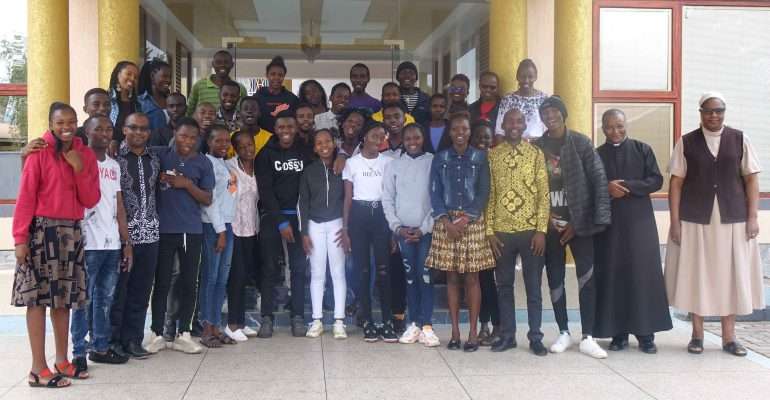In its quest to shape a better future and empower the youth, African Jesuit AIDS Network (AJAN) took the AHAPPY Training of Trainers (TOT) to the Youth of the Diocese of Nakuru. The training that started on 10th November 2022 and ended on15th November 2022 was attended by 41 participants at St Mary’s Pastoral Centre in Nakuru. The participants are Youth leaders from the 11 deaneries of the Catholic Diocese of Nakuru which are; Njoro, Keringet, Lanet, Kabarnet, Koibatek, Nakuru, Molo, Bahati, Naivasha, Mangu and East Pokot.
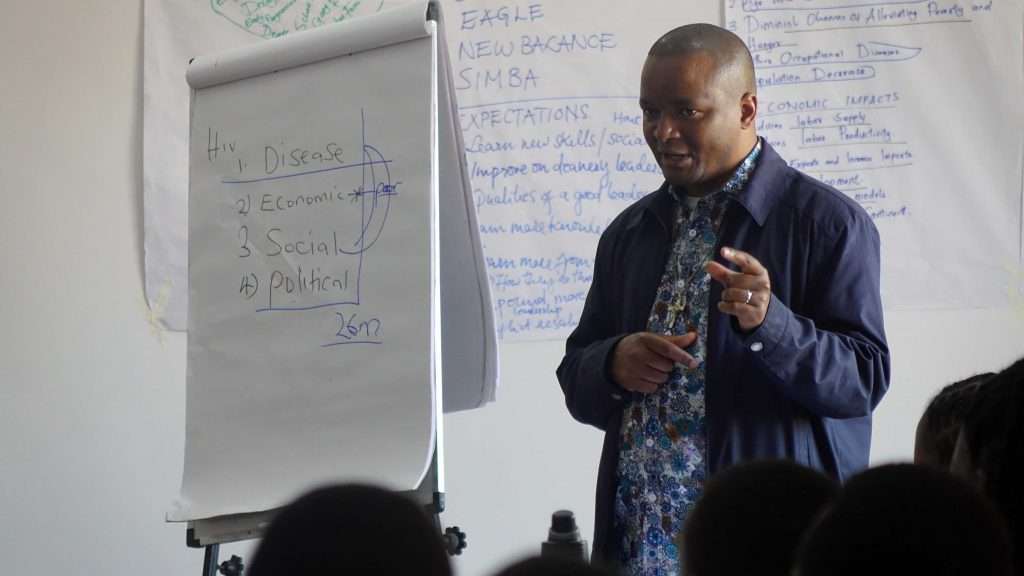
The training was kicked off by Rev. Fr. Edwin Ndumia, youth chaplain of the Diocese , who welcomed the AJAN facilitators and participants to the training, Ms. Mary Wanjugu one of the AJAN facilitators, engaged the youth in an opening creative activity where they got to share with the AJAN facilitators their expectations of the training. The 5-day training saw the youth being trained on better leadership qualities, providing services to the people and community back home, ways of resolving conflicts between leaders and their followers, balancing leadership, and pastoral life, socializing and interacting with their peers which is under the third Universal Apostolic Preferences (UAP)- accompanying young people in the creation of a hope-filled future.
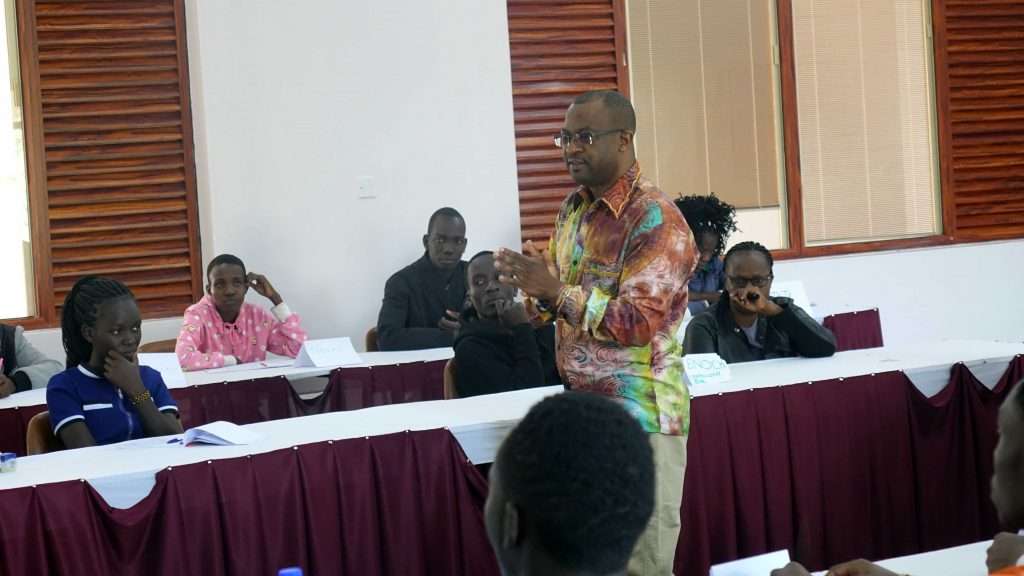
On the first day Fr. Ismael Matambura Sj, AJAN director talked about the role of AJAN and the Jesuits in Africa in accompanying young people through the AJAN HIV and AIDS Prevention Programme for the Youth (AHAPPY); he engaged the youth on the state of HIV/AIDS, Tuberculosis, Malaria and other pandemics affecting the African continent, the creation of man and duties allocated to him, its relation to self-awareness by the youths; the challenges they face, how to address them and how to interact with the world.
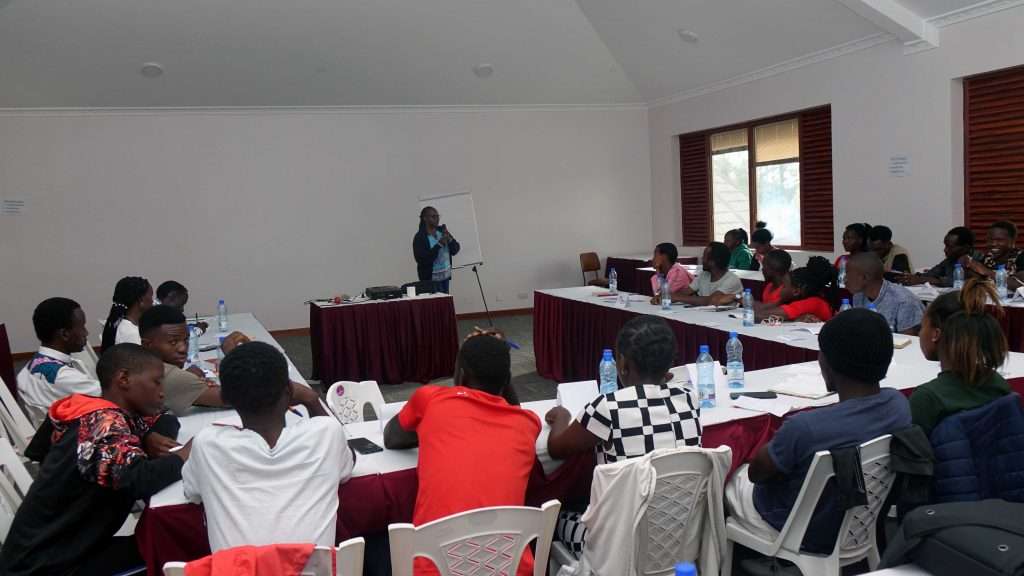
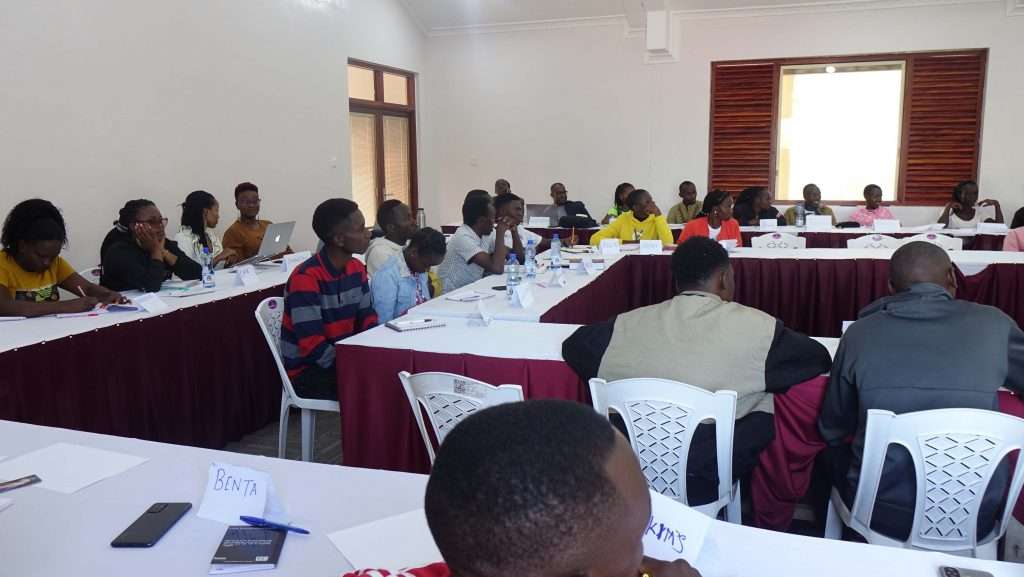
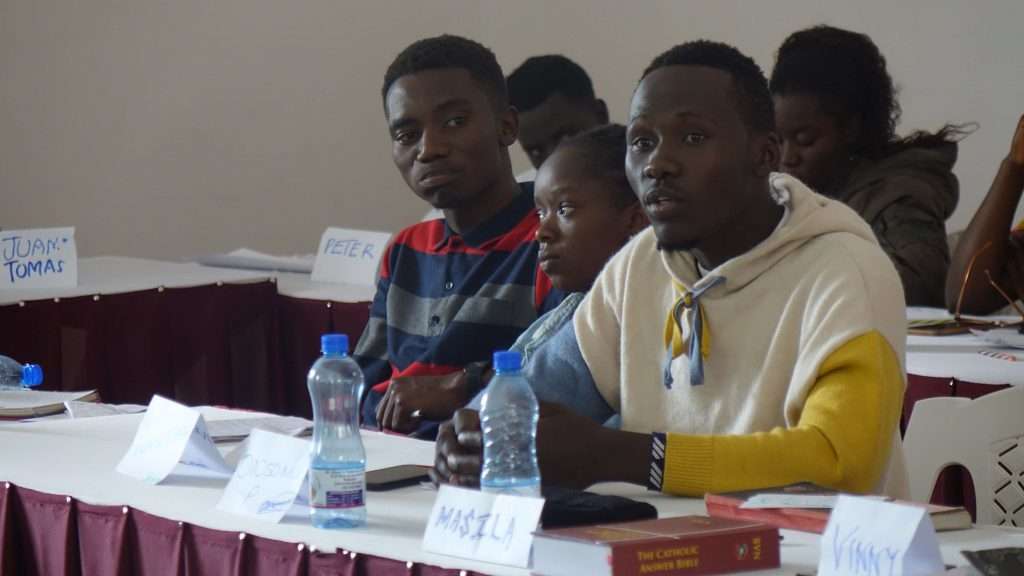
The contributors to the training sessions were Ms. Samantha Waki, Ms. Mary Wanjugu and AJAN capacity building Officer Ms. Pascalia Sergon who involved the youth in deeper conservation about self-awareness, self-development, character formation and how their relations with self, friends and people in the community impacts them positively and negatively. Discussions surrounded how young people can make better decisions to live a positive life free from HIV/AIDS, drugs and how to prepare their future .
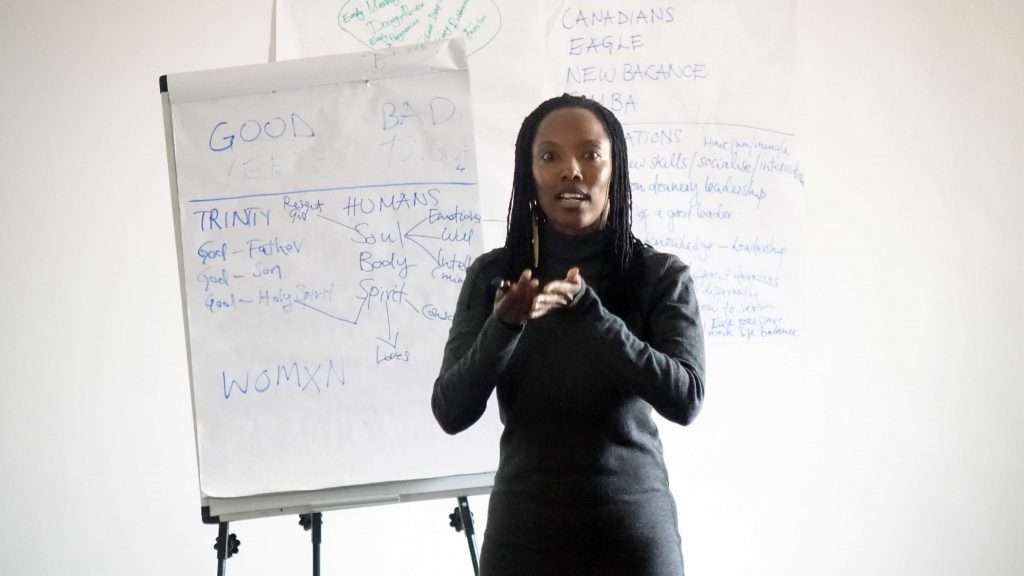
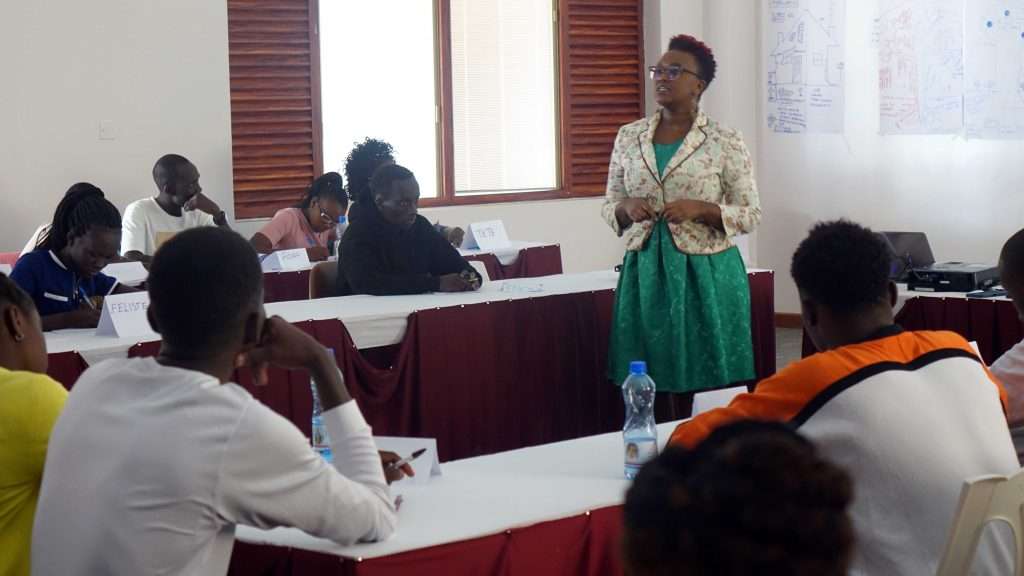
On the second day of the training, the participants were involved in a group discussion and presentations where they brainstormed on issues and challenges affecting the youth. This exercise enabled the youth highlight issues affecting their communities. School dropout, drug abuse, HIV/AIDs infections, early forced marriages among teens and violence in the community were some of the problems burdening them. The training facilitators Fr. Ismael Matambura Sj and Ms. Mary Wanjugu engaged the youth on issues about HIV and stigma in the community, the myths surrounding HIV infections how one can be infected with the virus.
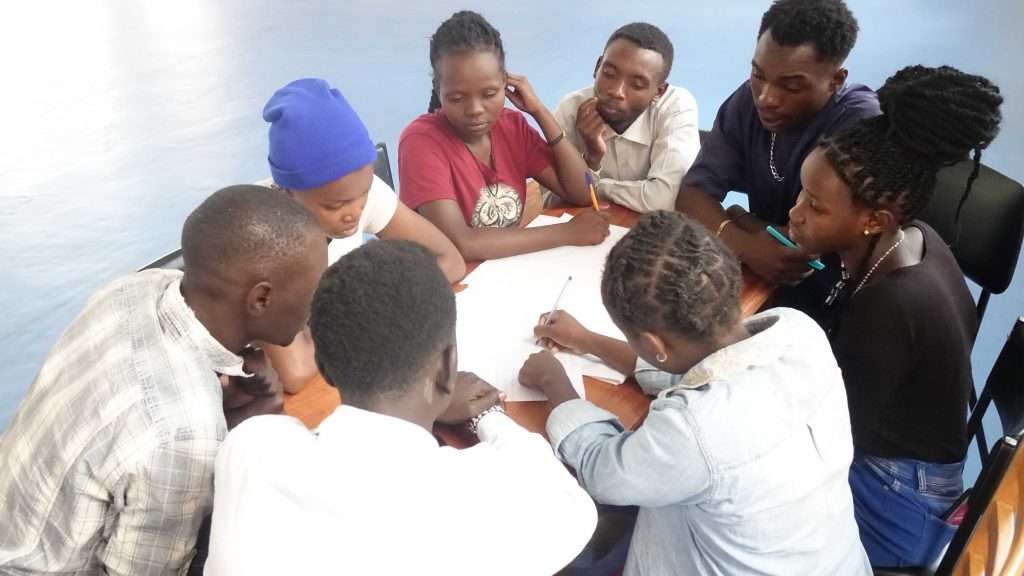
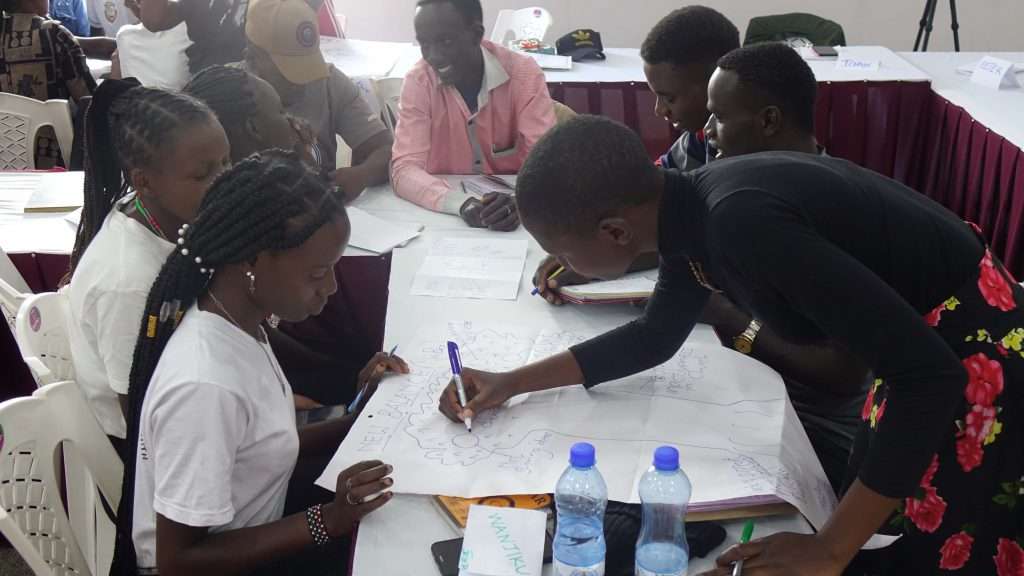
Youth participants partake in the AHAPPY Group Discussions Activity
From the session a major question was raised by one of the participants that elicited discussion; How long does it take for one to get to know that he or she is affected by HIV/AIDS? the second question was: Do we have persons within our community who have sexual intercourse with HIV/AIDS infected people, and they don’t acquire the virus? And are they able to still be carriers of the virus and infect other people?
The engagement between the Youth participants and facilitators proved that the young people were facing enormous challenges when it comes to making decisions about their life and health , the diminishing opportunities for work, the growth of discrimination among people in the community. As the participants were taken through the AHAPPY modules; B-This World I live in and C- Facing a World with HIV/AIDS, they were able to relate the topics to the aforementioned issues above.
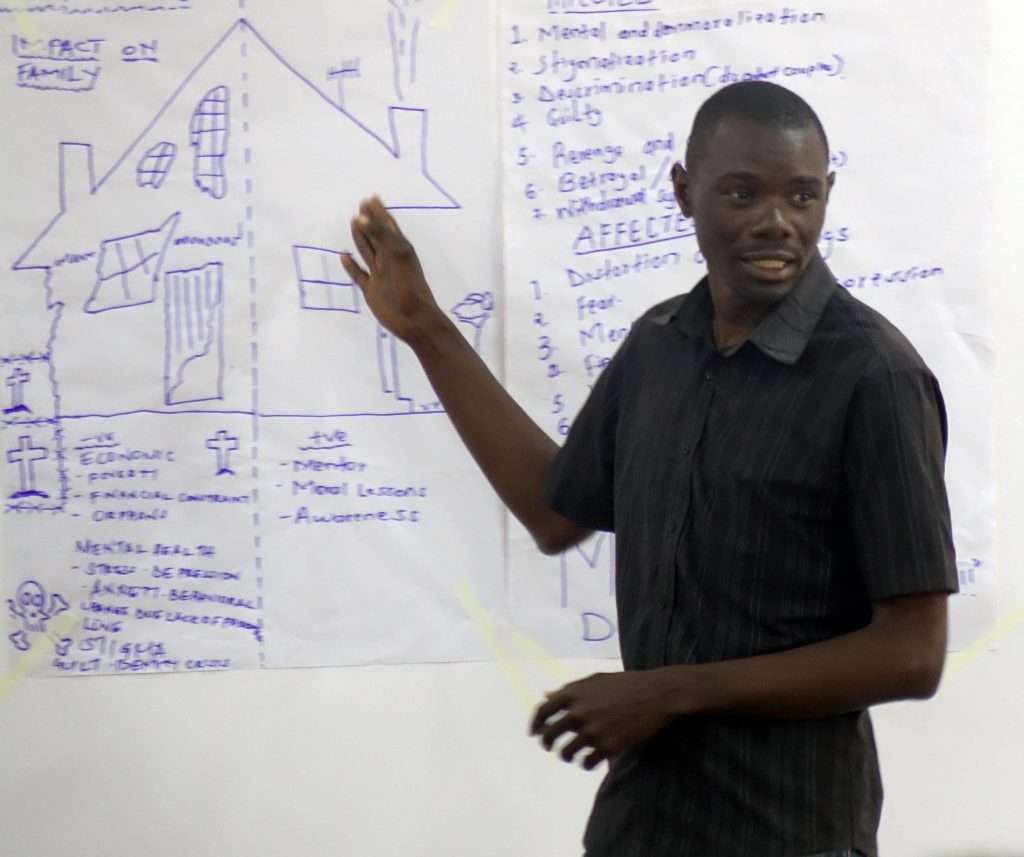
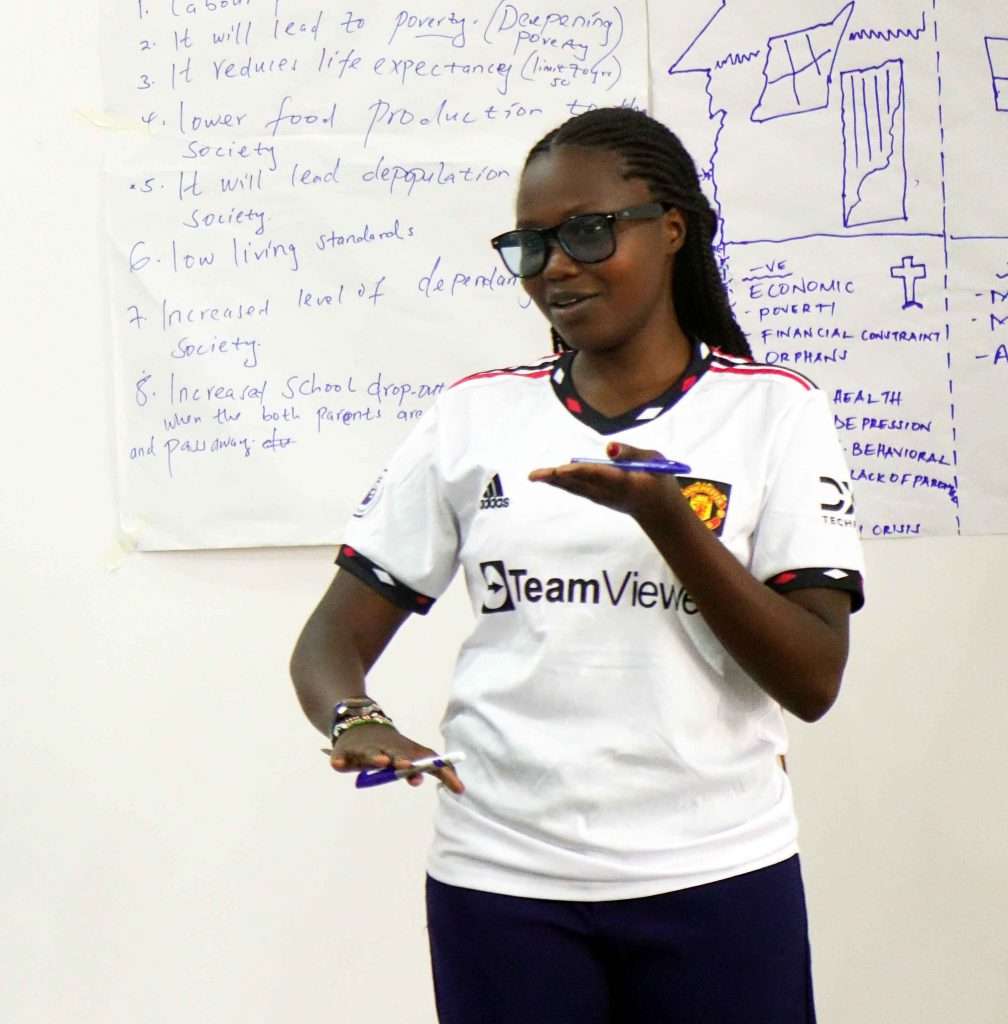
One of the participants Moreka O. Quentin said, “Many youths are taking drug abuse as a normal thing. It’s more like a lifestyle to the youth and these makes it difficult for the youth to realize that it is wrong, harmful and they are likely to be hooked on them and this may lead to more serious health and social issues,” in his understanding of their role as leaders in the parishes, he says. “We are all equal and we do need each other. In life there will always be people leaser or greater than others similarly our fingers are not equal.”
Benta Sumukwo, from Kabarnet deanery, St. Peters, Kaptere, Catholic Diocese of Nakuru, she said, “I am surprised by the high number of HIV infections in sub-Saharan Africa. I am delighted that I was able to be trained on mentorship and human dimensions and I find that some of the issues affecting the youth from our parish and deanery is the lack of ideal, both professional and personal mentors, some youths have underlying childhood emotional damage that is affecting their current behavior, view of matters and perspective of things. My advice to my fellow youth is that they should first be good role models by leading a chaste life, be the frontiers in identifying, correcting or regulating drug use or abuse and have the highest will to change.
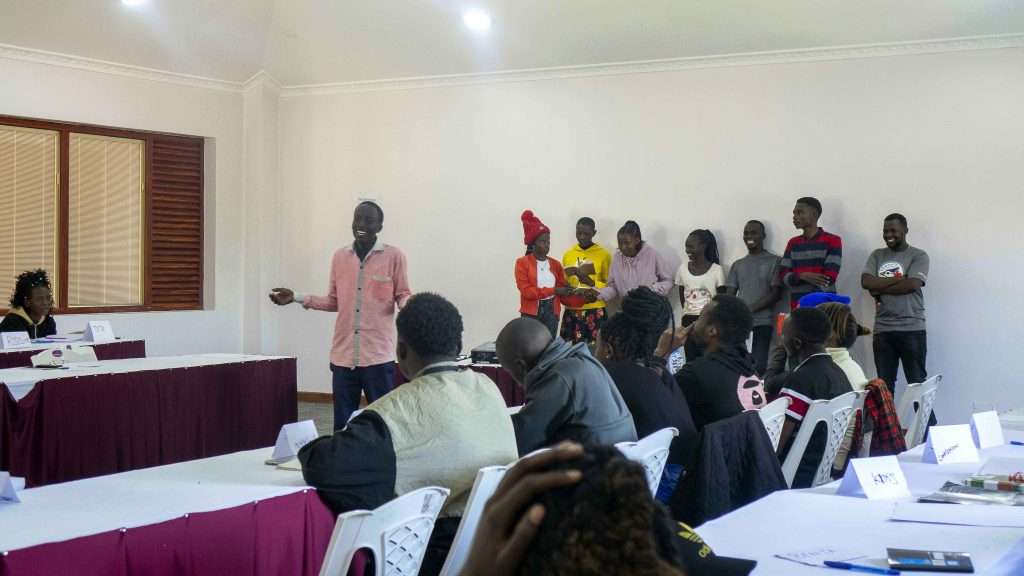
Paul Kiplangat one of the participants who comes from St. Francis Parish Lower Subukia, Catholic Diocese of Nakuru shared his experience after the training, he says, “The AHAPPY training of trainers was inspiring to me and all the participants, the facilitators were so engaging, this provided an environment in which we would openly discuss with the facilitators the issues we are dealing with at a personal level. Specific area that really captured my interest in this training is that Sexually Transmitted Infections (STIs) are spreading among our youth without our knowledge. The male gender when they are affected with the STIs they assume the infections and they use painkillers due to the shyness of talking about what is affecting them, until the effects are adverse, that the infections are now affecting their private body parts that is when they start seeking for the needed help from health centers.”
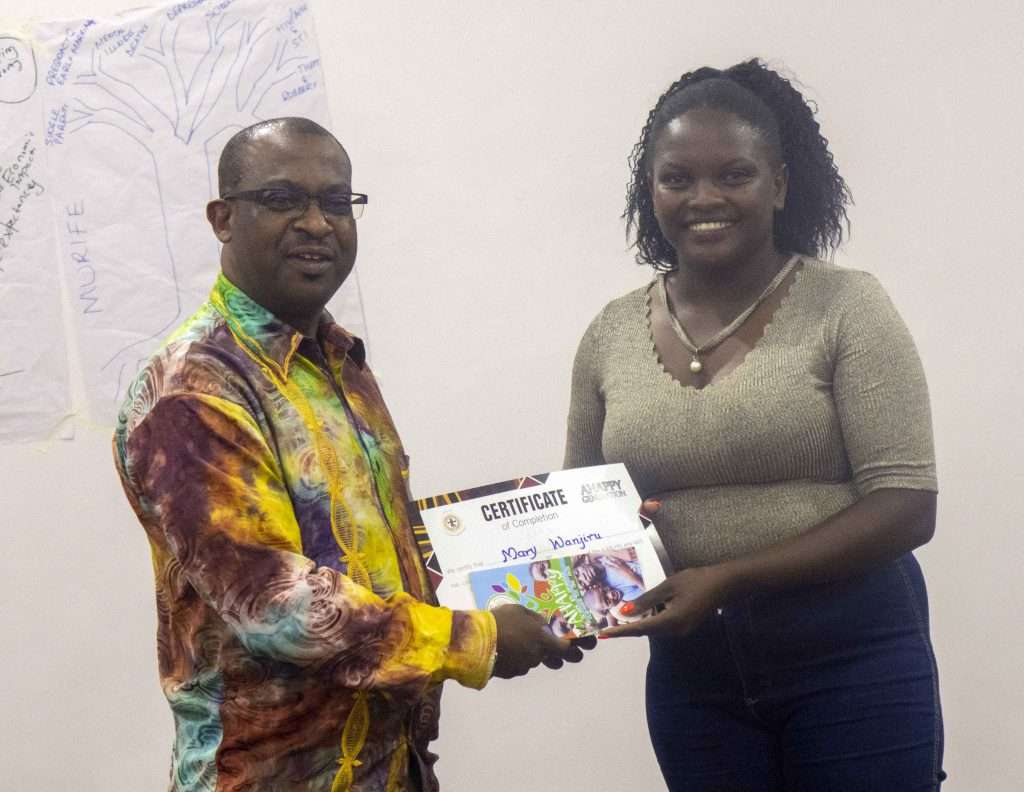
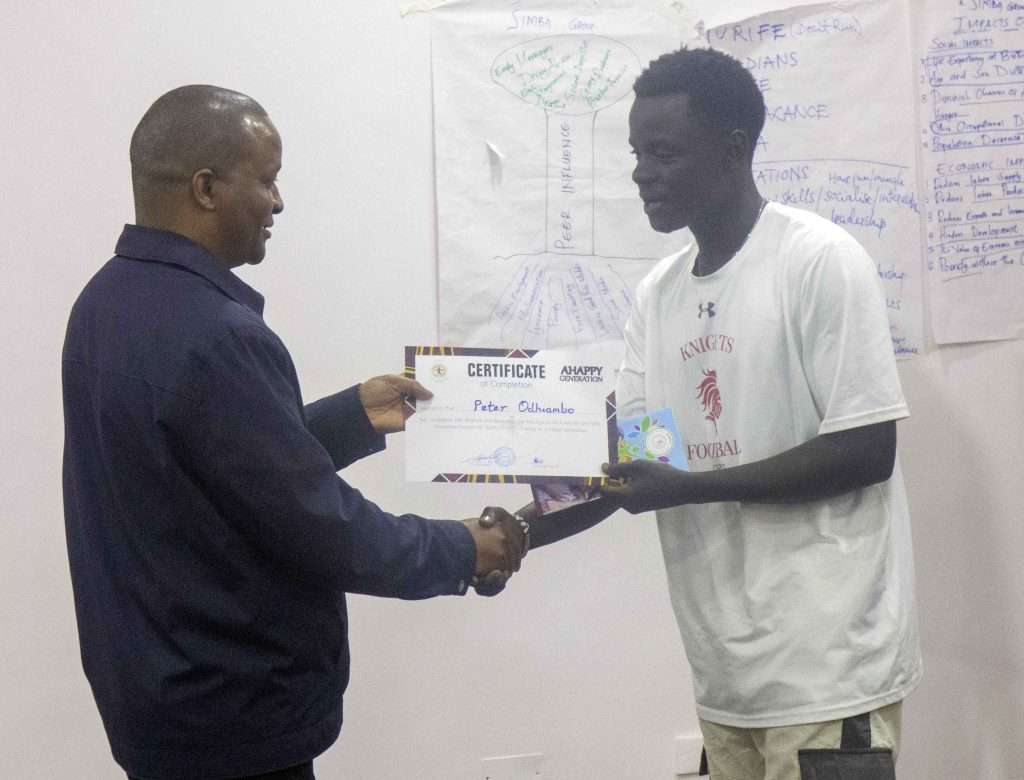
Presentation of AHAPPY TOT Certificate by Fr. Ismael Matambura Sj, AJAN Director and Fr. Edwin Ndumia, Youth Chaplain Catholic Diocese of Nakuru to the Participants
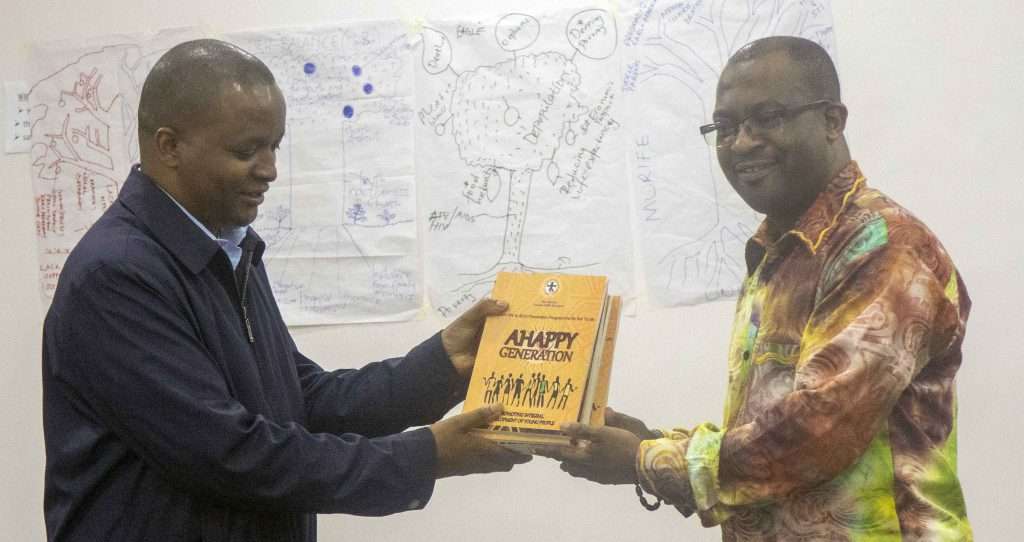
The youth leaders from different deaneries of the Catholic Diocese of Nakuru were able to present the social-economic projects they will be undertaking back at their deaneries respectively. At the end of the five-day training, the participants were presented with AHAPPY Training of trainers Certificate for undertaking the five-day training, Fr. Ismael Matambura Sj encouraged the participants to use the knowledge they have gained to go and train their fellow youths, back at their parishes, get them enrolled to the AHAPPY program, to be the leaders and role models of the society. Rev. Fr. Edwin Ndumia thanked the AJAN team for taking the youth leaders through the AHAPPY TOT and challenged the participants to go forth and use the knowledge gained to empower fellow youths and ensure that they have implemented the proposed activities in their deaneries, they have the potential to bring the needed change and care for the environment around them.
Por, Dennis Owuoche
Responsável de Comunicações da AJAN

